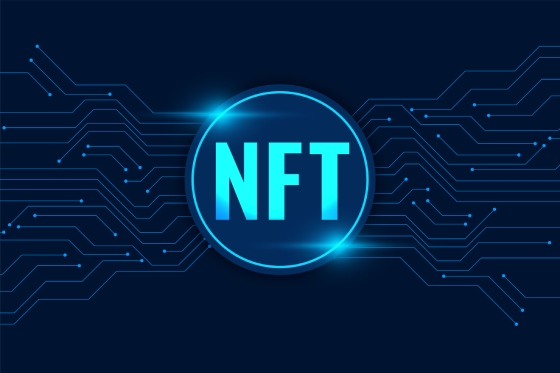-
NFTs refer to digital assets with a distinct value. They have influenced the online community and emerged as a leader in the cryptocurrency space. Due to NFTs' increasing popularity in recent years, investors from all over the world are flooding the market. We can now represent almost any item, including pictures, videos, music, artwork, cards, and much more, as NFTs. NFTs are fundamentally different from other crypto tokens; instead of trading tokens in a decentralized exchange like most crypto tokens, trading assets in NFTs takes place in a specialized market called NFT Marketplace. A blockchain network serves as the foundation for NFT Marketplace. Investors constantly move forward after completing one NFT transaction. They must therefore keep their NFTs in a safe and secure location. The NFT wallet development is relevant in this case.
What is an NFT wallet?
In a broad sense, an NFT wallet is a typical cryptocurrency wallet that supports non-fungible tokens in addition to fundamental tokens like BTC, ETH, and USDT. Examples of such protocols include ERC-721, ERC-1155, TRC-721, dGoods, BEP-721, and BEP-1155. Furthermore, to produce, maintain, and trade the assets, these wallets typically feature further connections with leading NFT marketplaces and DeFi projects.
Metamask, Enjin, Math Wallet, Trust Wallet, and AlphaWallet are the most well-known NFT wallets. These online marketplaces make it easier to store, purchase, and trade NFTs for cryptocurrencies or fiat. They provide an easy-to-use interface and seamless integration with the NFT marketplaces like OpenSea and Rarible. You can make your non-fungible token there and sell it at auction.
Also, Read | Most Resourceful Blockchains for NFT Development
Types of an NFT Wallet
Custodial Wallet
Custodial wallets frequently use a third-party provider to store the credentials of the wallet on their servers, including NFTs, associated assets, coins, tokens, and most crucially, private keys. All a user needs to do to complete the transactions is log in to their wallets.
Non-Custodial Wallet
Non-custodial wallets, on the other hand, only permit the user to access all of the data related to their wallets, including private keys, authentication codes, NFTs, cryptographic assets, etc. Users are responsible for sharing private information with third parties and losing their keys.
Hot Wallet
To buy, sell, store, and trade NFTs, one can utilize this kind of desktop or web application. These wallets keep your NFTs online, and it won't be simple to get over the security these wallets have set in place.
Also, Read | Are Pre-Built NFT Solutions the Best Way to Enter the Market
A few Important Pointers for Consideration Before Beginning NFT Wallet Development
- A proprietor must first educate themselves thoroughly on the NFT Markets.
- The owner must be aware of both collectors' and creators' needs.
- To attract a large user base, the owner should concentrate on creating a wallet with cross-chain capabilities.
- The proprietor must have a strong business plan.
- Referral opportunities can be introduced to wallets to increase passive income and boost brand recognition.
- It is crucial to include new monetization means because it draws in more users.
- The owner can also create an NFT wallet similar to the well-known wallets already available on the online market.
Also, Read | Pre-Built NFT and Smart Contract Solutions for Quick Launch
NFT Wallet Must-Have Features
Two-factor Authentication Integration
Security is the most crucial factor while working with NFT wallet development. It enables users to have a high level of trust in your company and the product.
Automatic Logout
Any financial topic is particularly delicate, so this feature safeguards users from any unauthorized use and logs them out of the wallet after a predetermined amount of time.
Insurance
NFTs are just too expensive, and anything expensive needs a backup plan. Users can obtain insurance against their NFTs using this feature integrated within an NFT wallet.
dApps
As part of third-party integrations, users should have permission to access decentralized applications from their NFT wallet.
Search
Ensure that users are able to search for NFTs they've owned or other NFTs available on the market on the NFT wallet.
Auctions
Give users the option to buy or sell any NFTs by hosting an online auction on the NFT wallet app and earning a respectable profit.
Filters
Give consumers the option to apply filters to their NFT wallet's feed or search to get the precise item in the search results.
Ratings
The most secure and dependable NFTs are frequently the highest ranked. By reading the reviews and ratings for any NFT, users can get a better idea of the product. The NFT wallet app should have this crucial feature integrated.
Also, Read | A Comprehensive Guide to NFT Marketplace Development
Technology Stack to be Taken Into Account
Any feature or element of your NFT wallet development process will be useless without a reliable tech stack. Use your study to determine the tech stack that a specific market segment's rivals are utilizing, or if a need emerges, request that your development partner's team establish one. The top NFT wallets in the market often use a robust tech stack, such as one comprising jQuery, Nginx, Bootstrap, Modernizr, and more.
For more information about NFT wallets, connect with our NFT wallet development experts.

Our Offices
INDIA
Emaar Digital Greens, Sector 61,
Gurugram, Haryana
122011.
Welldone Tech Park,
Sector 48, Sohna road,
Gurugram, Haryana
122018.













